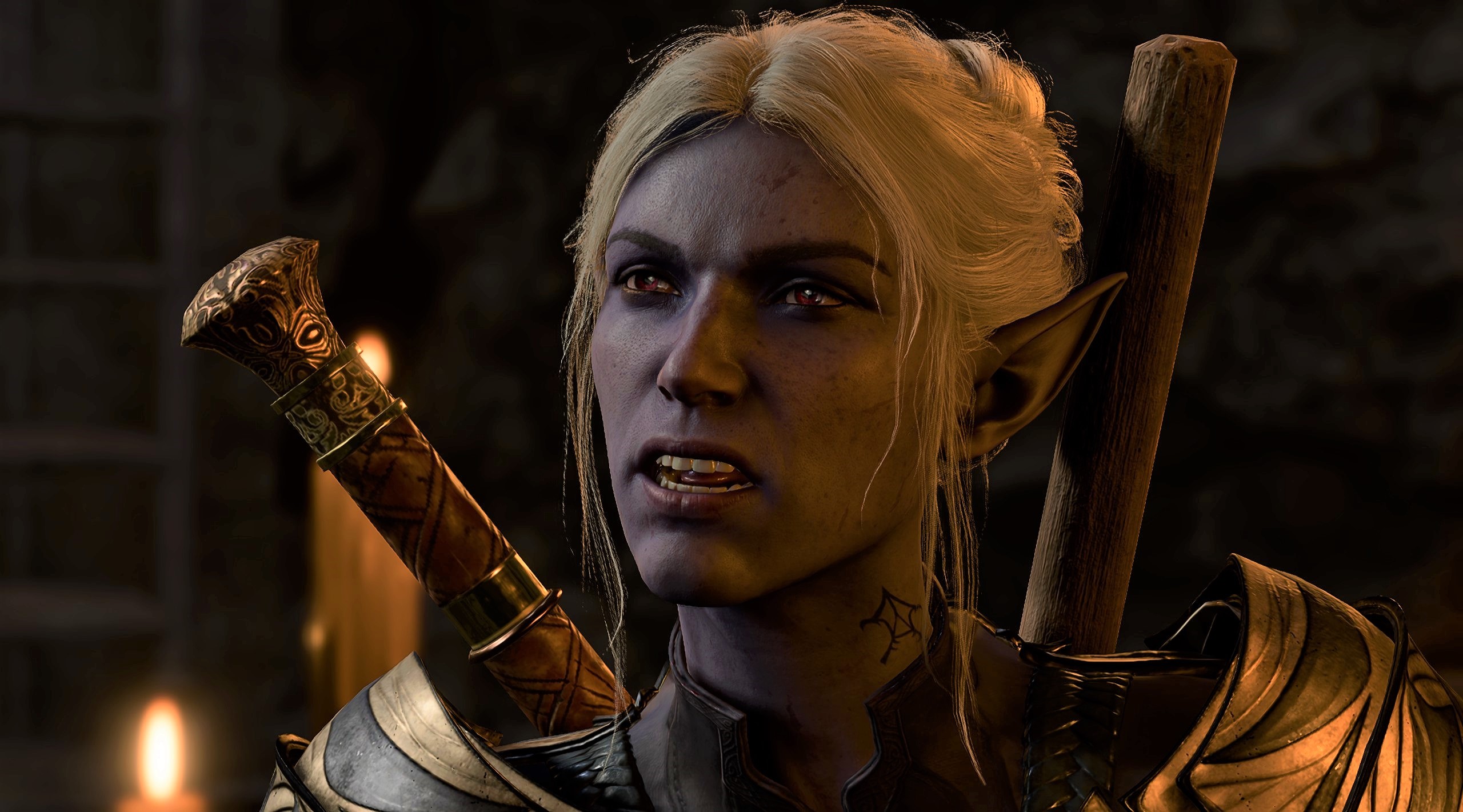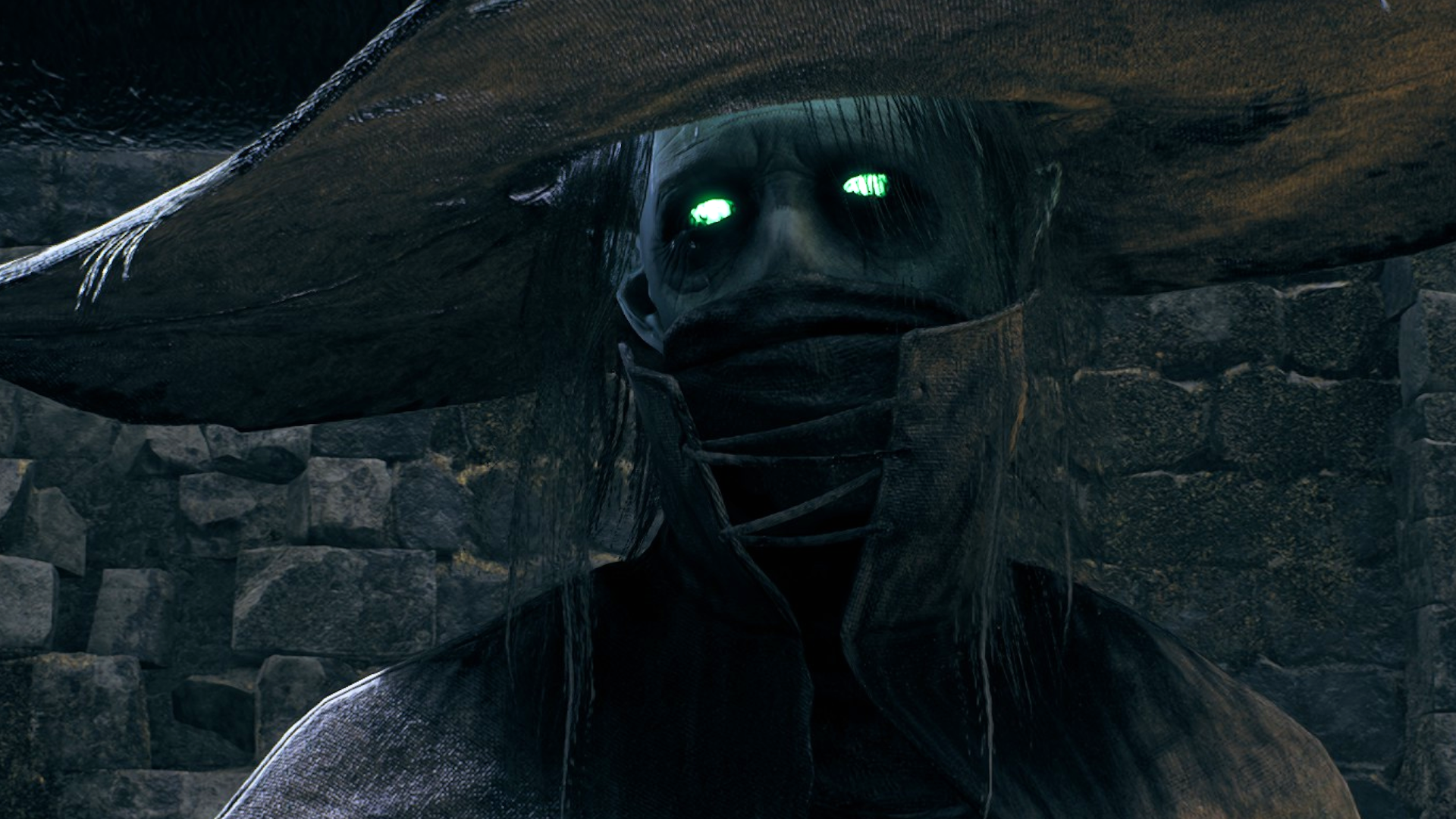
I cannot for the life of me figure out why respeccing—reallocating your skill points, your attribute points, your trait points, your P-Engine, whatever—is always so complicated in singleplayer games. In some infuriating cases, it's not possible at all.
I understand that game design is a huge and complicated discipline. Every game's a network of systems stacked on top of each other like a Jenga tower—seemingly innocent changes can see the whole thing collapse in on itself. It's never as simple as "why don't the devs just".
Because of this, there are design choices that stick around for a long time. Not because they're good, but because that's how it's always been done. Human beings don't like change.
For example: in some of ye olden MMORPGs, you'd usually have to spend a couple of minutes resting after every fight. Eating food to restore HP, drinking to restore mana, re-applying buffs, that sort of thing. This served a purpose back when those games were built to facilitate a chat engine, while that was still a new and novel concept. It's an opportunity to banter with your mates.
MMOs eventually became far less reliant on the social aspect. Dungeon finders happened, questing needed to become solo-friendly, and jolly cooperation in the overworld grew into an optional activity. Nowadays it'll only take a few seconds to get all your resources back, sure, but the shift wasn't instant. It was gradual.
When it comes to respecs, though, all I have are my own personal theories. I can only offer up my two cents as to why this arcane design choice is still plaguing our single-player games, in the hopes it'll go away entirely.
Complexity's not in vogue

RPGs used to be a lot more complex. Fallout, Baldur's Gate, The Elder Scrolls—their systems have become easier to navigate as time's gone by. You can still get your hyper-complex, number-crunching fix, but that's not the mainstream play anymore.
Even Baldur's Gate 3 uses 5th edition Dungeons & Dragons. While D&D can still be complex for newcomers, 5th edition is still a far cry from the number swarm of D&D 3.5. RPGs also used to be, on average, brutally difficult. That too has taken a backseat.
Both of these things made resource management genuinely important. Players were rewarded for their prior knowledge and mastery of a game's systems. Fumbling your way through your first playthrough and ending up with a busted child that couldn't finish the game was sort of the charm. But that's not the world we live in anymore.
I like a bit of teeth on my RPG, but I shouldn't need to start a whole new playthrough because I buggered up my character the first time. The tutorial for a game shouldn't end when you get fed up enough to delete your first save. Luckily, games have mostly figured this out—so why does it still cost cash to respec your character, if you can even respec them at all?
Money talk

For the RPG's massively multiplayer cousin, costly respecs make sense. Every activity in the game essentially prints money, pouring it into the virtual economy. This makes it possible to sleepwalk your way into a Star Wars: The Old Republic situation where the auction house is pretty much unusable for new players, and even simple items cost millions of credits. Inflation's a nightmare.
To counterbalance that, designers need to add in stuff that takes money out of the economy. Repair bills are the most familiar example, ensuring every player has a steady thinning of their wallets. Cosmetics, dyes, pricey mounts, auction house fees—every little helps. It's a necessary evil, sure, but it's also how economies work
Absolutely none of this applies to the single-player RPG, which is my point.
The problem

Some designers figure this out after the fact. If you've been following Remnant 2, you might've heard about the Orb of Undoing. This was a consumable item that let you respec your trait points. For some reason, it cost like 2,500 scrap (which is a lot). It sucked. Now, buying the Orb of Undoing is a one-time thing. You can ponder the orb, and your character's build, as much as you want.
On the other side of the coin, there's Cyberpunk 2077: Phantom Liberty, which has an absolutely maddening design choice wedged into it like a splinter. The game has a couple ways of building out a character: Attribute Points, which govern certain stats (and what perks are available) and Perk Points, which are used to buy perks. When the 2.0 update came out, CD Projekt Red gave characters the ability to respec their Attribute Points. Once.
I don't know what fascinating tangle of dream logic led to this decision, because despite the fact that 2.0's a victory in every other area, this makes zero goddamn sense. You can shuffle your Perk Points around as much as you like. Cyberware only takes a little cash to re-arrange. Why can't you move your Attribute Points around? Or, more to the point, why not?
You can argue that limiting respecs encourages the player to do multiple playthroughs. That's technically true, but I have no idea how that benefits the devs of a single-player RPG more than it frustrates players. Cyberpunk 2077 isn't a live-service game. There's no need to keep player retention up beyond making sure the game doesn't suck. Moreover, a playthrough can take dozens of hours to complete, so it's a massive time sink.

Elden Ring has a very similar issue. Obviously, since Elden Ring falls under the 'it's meant to be difficult' umbrella, it's a touch more forgivable—but only a touch. If you mess up your build, you're 'meant' to be punished for it in the same way you might be punished for dying without getting your runes back. It's also technically not a single-player game but, come on. The Lands Between doesn't have a market board.
It does do a few things better than its contemporaries, though—you get over a dozen Larval Tears scattered through the game on any playthrough, and by the end of the game you're replete with materials to upgrade your weapons with. But the fact you need to chew through a 90-plus hour game to reach the point where you can throw that much money towards experimenting is a problem in itself. Elden Ring has so many different builds you can toy with, and I've only used one of them—because by the time I had the dough to muck about, I was pretty much finished with the game.
You know what? It doesn't matter how cheap the respec cost is. I'm willing to die on this hill: every single-player game with a respec cost is being silly about it. Yes, even Baldur's Gate 3, which has a laughably piddly fee. Why does Withers need my cash? He's an immortal mummy man. He doesn't eat. Does Withers have a secret lover he's hiding? Is Withers somebody's undead sugar daddy mummy? It's fine, I'm fine. I'm calm.
If a game doesn't have a player economy to worry about, I don't really think respec costs add anything substantial. They're just a weird hurdle we're all still jumping over because we've always had to jump over it. I'm tired of pretending like we need them, and you should be too.







